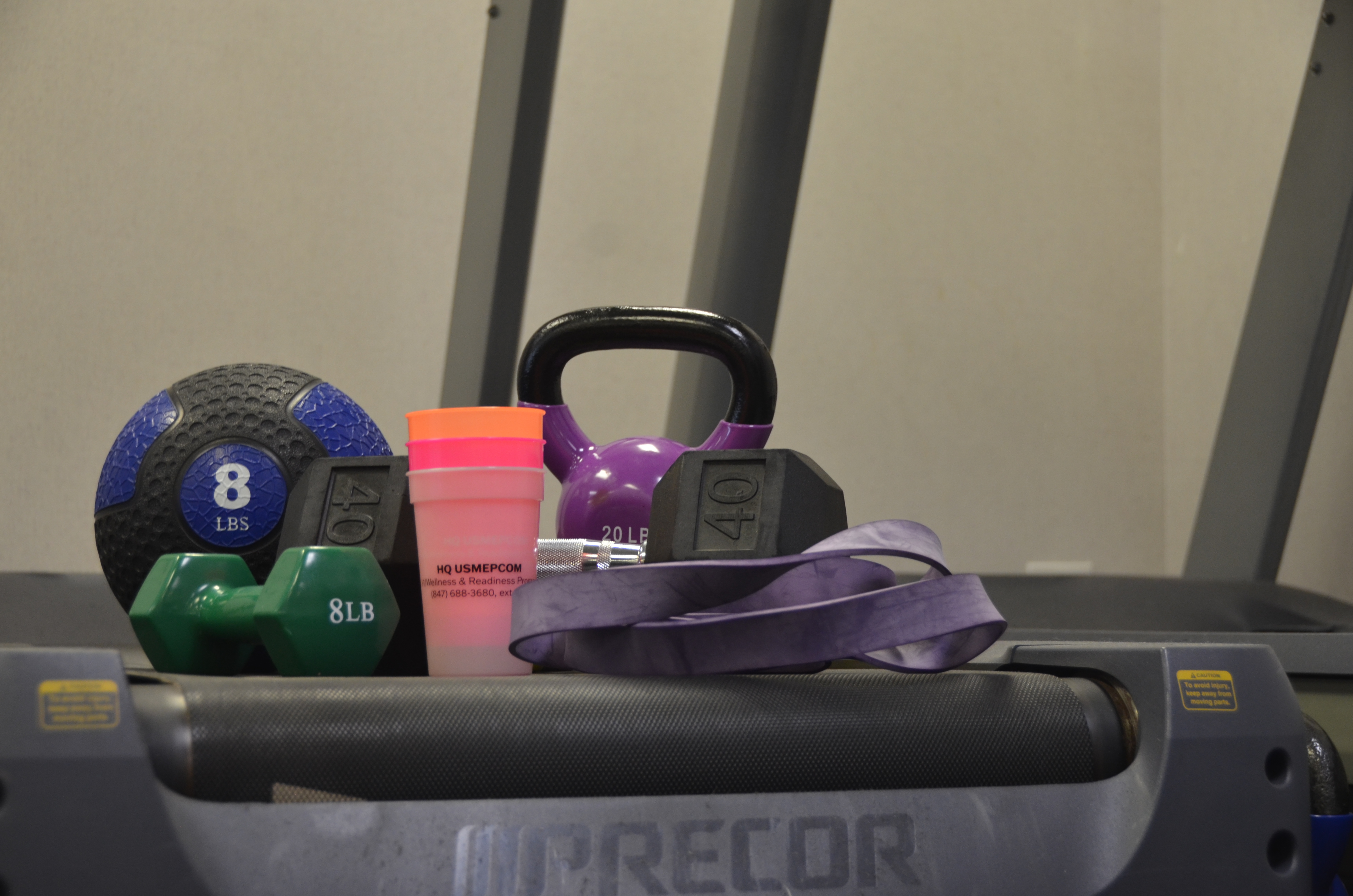Civilian Fitness Program Grows
4.12.21 USMEPCOM
Story by Scott Koker
USMEPCOM Public Affairs

The civilian fitness program has expanded at USMEPCOM.
The voluntary program, which requires supervisor approval, now allows full-time Department of the Army civilian employees to receive up to three hours of administrative leave per week, with no more than an hour per day, to participate in physical fitness activities and preventative health events.
"We at USMEPCOM care about all our employees' health and wellbeing, and this updated policy puts that care into action, providing our people opportunity to build up their health and resiliency,” said Jo Anne Cunningham, USMEPCOM deputy commander and chief of staff. “Of course, mission comes first, but I hope personnel across the command will make good use of this program."
Prior to April 5, the program limited employee participation to six months but can now be used indefinitely.
“Now, employees can participate for the remainder of their civilian careers,” USMEPCOM wellness and readiness program specialist Mischelle Magmanlac said. “The other major change is a medical certificate from a doctor isn’t needed, but participants are required to certify they aren’t aware of any medical condition that could put them at risk or harm while participating in the program.”
The program is outlined in Chapter 7 of USMEPCOM Regulation 608-1 and part of the command’s overall efforts to build knowledgeable, resilient and healthy behaviors within its civilian workforce. It closely aligns with the Army Civilian Fitness and Health Promotion program, which superseded Army Regulation 600-63 for health promotion when it was released in January.
Under the USMEPCOM program, physical fitness activities must be specifically targeted at improving fitness levels or body conditioning.
“An hour of fitness can really invigorate a person emotionally and physically, especially during the pandemic,” said Magmanlac, who added the program is also open to teleworkers. “I consider it part of self-care and we all know how important self-care is.”
Program participants can also learn about health promotion topics such as nutrition and exercise principles. Other subject areas include smoking cessation, substance abuse, diet and nutrition, exercise, back care, cholesterol management, mental health, stress management, weight control, cancer prevention and hypertension control.
“The program emphasizes education and preventive measures, not pre-existing conditions,” Magmanlac said.
The goal of this program is to establish and sustain a climate that promotes and reinforces health and wellness. It also seeks to raise awareness of programs that support a holistic approach to wellness and identify innovative ways to provide opportunities for civilian employees to participate in command-sponsored physical fitness events, evaluations and education.
Supervisors are encouraged to support program participation by promoting healthy lifestyle behaviors, facilitating employee enrollment, monitoring and tracking employee participation, and discussing fitness and wellness as part of daily communication with employees.
Magmanlac expects the program’s expansion to spark an increase in participants.
“Not only people at headquarters, but people at MEPS are so excited about this,” she said. “I think we’re going to have a lot of support on this one and a lot of employees will take advantage of the program’s benefits, especially if the supervisors really emphasize the importance.”
For more information about the program, contact Magmanlac at mischelle.m.magmanlac.civ@mail.mil.